Italy, Spain Suffer Record Virus Deaths As British PM Tests Positive
Italy on Friday recorded the most daily deaths of any country since the start of the coronavirus pandemic and Spain had its deadliest day, as British Prime Minister Boris Johnson became the first major world leader to test positive.
Italy reported 969 new deaths, Spain 769 and France 299 as Europe reeled from a crisis that led the United States on Friday to finalise an unprecedented $2 trillion stimulus package.
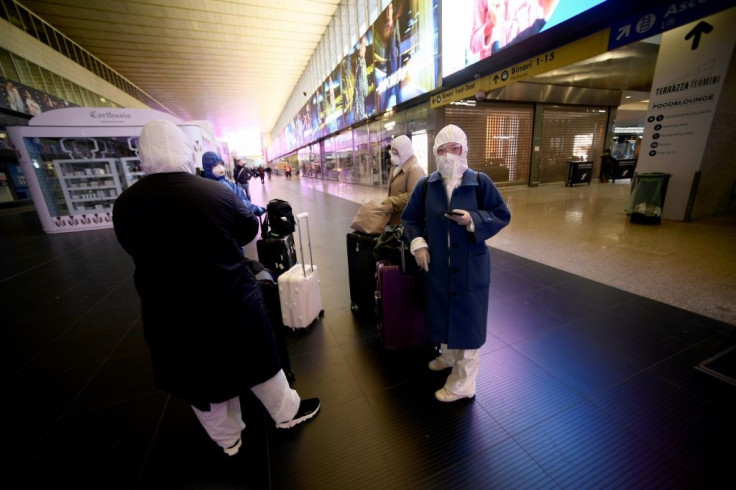
In other grim milestones, AFP tallies showed more than 26,000 deaths worldwide, and a total of 300,000 cases now recorded in Europe, after the United States overtook China as the country with the most infections.
Italy showed a continuing downward trend in infection rates and Spain said its rate of new infections appeared to be slowing, but other countries were bracing to feel the full impact of the virus's spread.
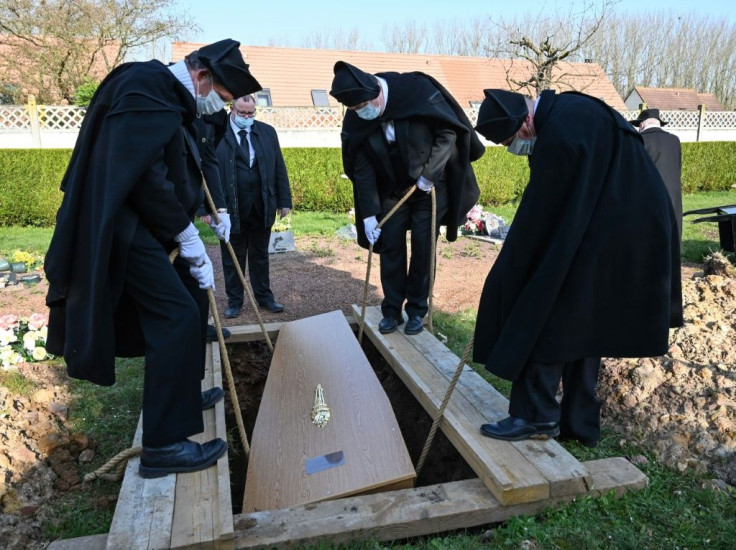
The World Health Organization's regional director for Africa warned the continent faced a "dramatic evolution" of the pandemic, as South Africa became the latest nation to start life under lockdown and reported its first COVID-19 deaths.
Johnson, whose country has seen more than 14,000 declared coronavirus cases and 759 deaths, said he had developed mild symptoms over the previous 24 hours and tested positive.
"I am now self-isolating, but I will continue to lead the government's response via video-conference as we fight this virus," Johnson, who had initially resisted calls for a nationwide lockdown before changing course, wrote on Twitter.
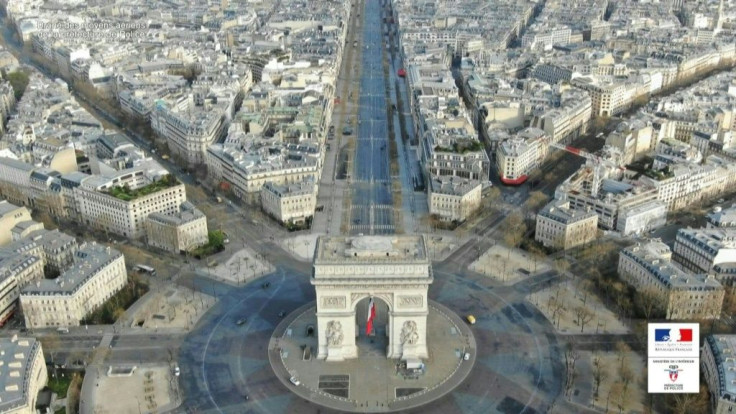
Britain's Health Secretary Matt Hancock also tested positive, and was experiencing mild symptoms.
Europe has suffered the brunt of the coronavirus crisis in recent weeks, with millions across the continent on lockdown and the streets of Paris, Rome and Madrid eerily empty.
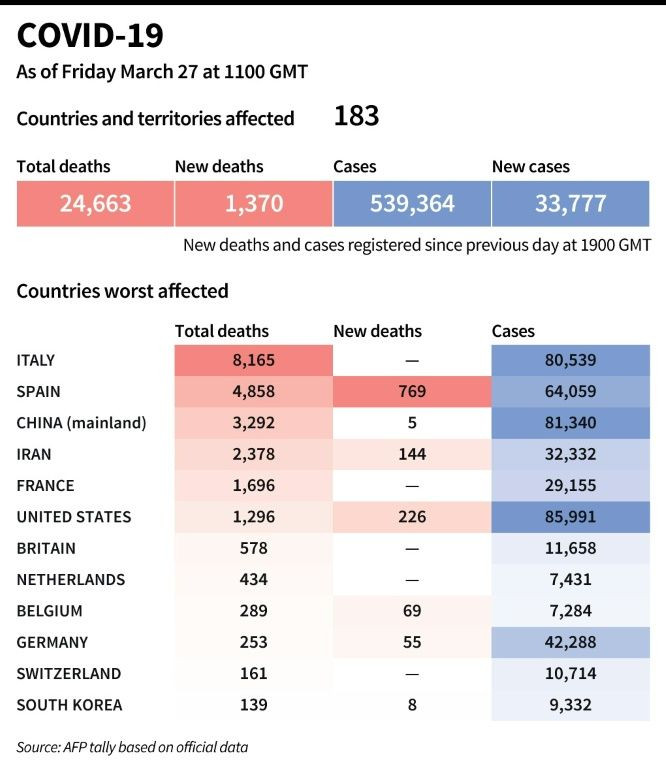
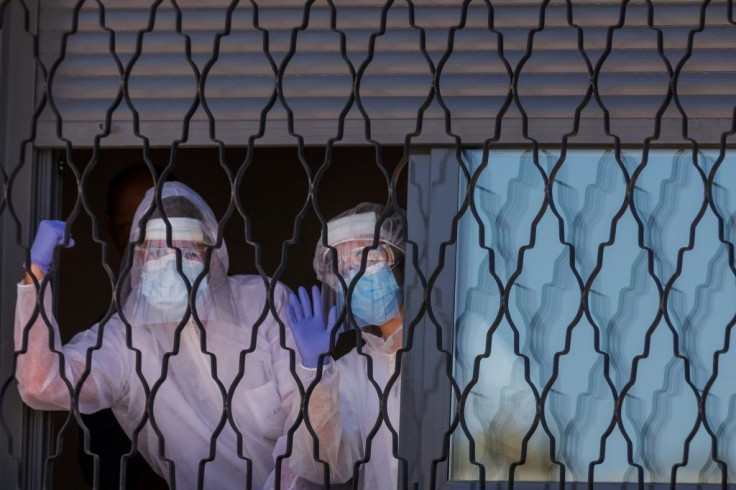
In France -- where nearly 2,000 people have died -- the government announced it was extending its stay-at-home order until at least April 15.
While severe, the 299 new deaths it recorded on Friday were lower than the 365 reported the previous day.
The death of a 16-year-old girl from the virus has particularly shaken France, and shattered the belief of many young people that they were immune.
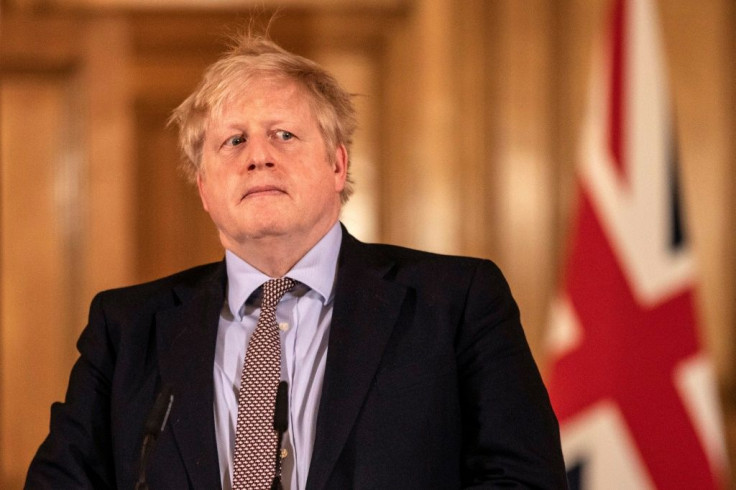
The girl's mother Sabine told AFP that Julie "just had a cough" at first but deteriorated quickly. She died on Wednesday, less than a week after showing her first symptoms.
"It's unbearable," Sabine said. "We were supposed to have a normal life."
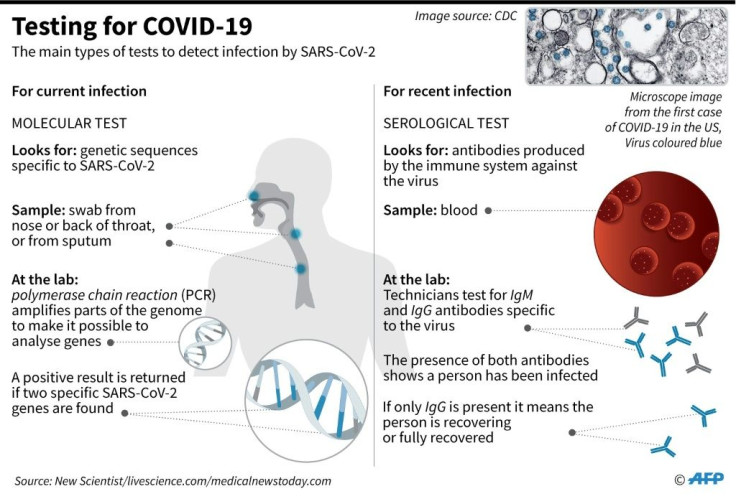
In the United States, known infections jumped past 100,000, surpassing China and Italy, with deaths approaching 1,500, according to a tracker at Johns Hopkins University.
In New York City, the US epicentre of the crisis, health workers battled a surging toll of dead and infected, including an increasing number of younger patients.
"Now it's 50-year-olds, 40-year-olds, 30-year-olds," said one respiratory therapist at the Jewish Medical Center in Queens.
They "didn't listen about not going out or protecting themselves and washing their hands", he said.
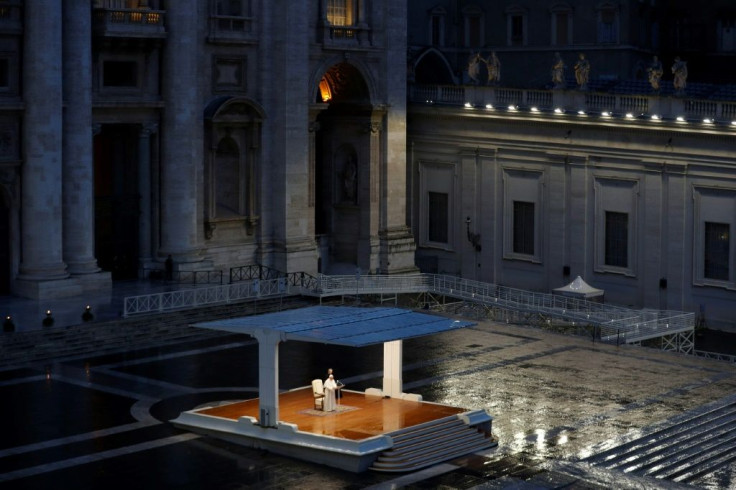
Wall Street slipped again after three days of recovering this month's heavy losses, even as President Donald Trump signed into law the largest stimulus package in US history.
The Republican president signed the bill hours after it cleared the House of Representatives, led by the rival Democratic Party.
The package will pump $100 billion into hospitals and give checks of up to $3,400 for the average family of four, in the hopes of reviving spending after unemployment claims soared to a new record.
"This will deliver urgently needed relief to our nation's families, workers and businesses. That's what this is all about," Trump said as he offered rare praise to Democrats for working quickly with his administration to pass it.
But even as Europe readied its own stimulus measures, experts warned of misery that could rival the Great Depression, with millions of retail and other workers suddenly out of jobs.
"It is clear that we have entered a recession" that will be worse than in 2009 following the global financial crisis, International Monetary Fund chief Kristalina Georgieva said Friday.
The coronavirus first emerged in China late last year before spreading globally, with more than half a million declared cases in 183 countries and territories.
Over the last six days, as many new cases have been diagnosed around the world as in the previous 80 days.
Beijing managed to contain its spread with lockdowns and quarantines, and its epicentre Wuhan is in the process of easing severe movement restrictions in place for two months.
In a historic first, Pope Francis performed the rarely recited "Urbi et Orbi" blessing to an empty Saint Peter's Square.
"Thick darkness has gathered over our squares, our streets and our cities; it has taken over our lives, filling everything with a deafening silence and a distressing void, that stops everything as it passes by," he said.
"We find ourselves afraid and lost," he said, describing the coronavirus as a "tempest".
The WHO's chief Tedros Adhanom Ghebreyesus said the dire lack of protective gear for frontline health workers was one of the most pressing problems in the fight to prevent deaths.
"The chronic global shortage of personal protective equipment is now one of the most urgent threats to our collective ability to save lives," he told a virtual news conference in Geneva.
The World Tourism Organization said Friday it expected tourist arrivals to drop by 20-30 percent this year, with losses of $300-450 billion in international tourism receipts.
But there have been rays of hope in the midst of the crisis.
Armed groups in Cameroon, the Philippines and Yemen have moved in recent days to reduce violence after UN Secretary-General Antonio Guterres issued an appeal for ceasefires.
© Copyright AFP 2024. All rights reserved.





















